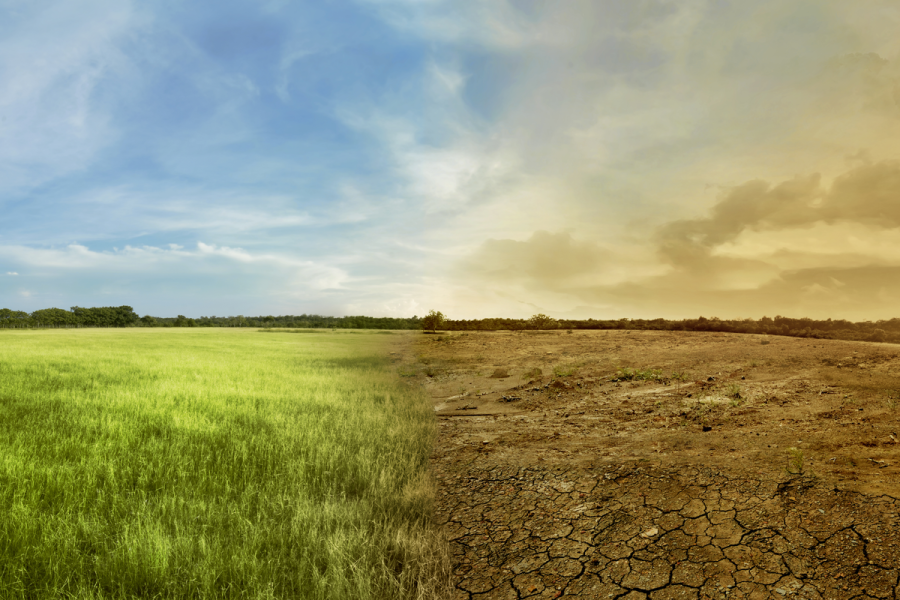Columns
Climate change and national security
It is encouraging that America is rejoining global efforts against climate change.
Surendra Singh Rawal
The sea-level rise due to climate change is threatening US cities such as southern Louisiana, Miami and New York, and posing an existential threat to low-lying nations like Bangladesh, the Maldives and the Marshall Islands. On the one hand, the submersion of the landmass will present direct threats to the US homeland and critical energy and military infrastructure, while on the other, population displacement can increase the influx of refugees and immigrants. The ocean level changes will also significantly impact maritime security and strategically important waterways such as the South China Sea and the Arctic Ocean. The security challenges due to the sea-level changes are diverse and unprecedented. For example, the temperature and sea-level rise is cracking open the concrete dome, known as the nuclear tomb, which is used to dispose of nuclear waste in the Marshall Islands, threatening to spill plutonium into the Pacific Ocean.
Water management
Water, food and energy scarcities are another set of risks presented by climate change. Water management across the globe is critical because the chain reaction between water scarcity, food production and energy demands is likely to produce a vicious cycle. These shortages presented by climate change interact with each other and compound into societal violence over time. The severe water crisis is likely to spark inter-state conflicts in some water-scarce areas such as the Indus valley, the Brahmaputra-Meghna basin, the Nile basin and the Sistan region.
The inter-linkage of the environment and the complexity of South Asia’s socioeconomic and geopolitical situation has made the region more susceptible to climate change. Nepal’s snow-capped mountains are turning bare, adversely affecting the country and the entire South Asian region, thereby amplifying food insecurity, violence and migration in the Himalayan basin area. Due to a monsoon pattern shift, the area suffers from droughts, inundation and landslides. The increasing natural disasters demand extensive humanitarian assistance and disaster relief missions, compromising military preparedness for core military operations.
Studies have shown that water scarcity, extreme weather conditions and ecosystem degradation due to climate change have generally resulted in communal and local conflict. However, such low-level violence resulting from climate change can turn into intra-state or international conflicts, mass migration and state failure, ultimately creating more ungoverned spaces. A case in point is Syria, where mass migration in the millions poses a considerable security challenge in the region. Similarly, North Africa, the Middle East, Central Asia, the Indo-Pacific and other strategically important regions suffer from this trend. Global warming has created water scarcity in the Himalayan river basin due to glacier melt, resulting in intra-state and inter-state conflicts among South Asian Association for Regional Cooperation nations. The security risks created by climate change are transmitted over time and space. Some risks take time to emerge, while others appear as rapid disasters, impacting local and distant regions.
Climate change will have a severe impact on health across the world, leading to security implications. The World Health Organisation suggests that children in resource-strapped countries are likely to suffer the most from adverse health conditions due to climate change, but other segments of the global population or countries are also not immune from the health effects such as epidemics and pandemics. While a direct causal relationship between climate change and Covid-19 has not been established yet, a new Harvard TH Chan School of Public Health study confirms that 'pollution is at the heart of both problems', indicating a possible connection between the two. A National Geographic report shows a strong correlation between deforestation and the displacement of fruit bats to human communities carrying a deadly disease with them.
Unlike other security challenges, the effects of climate change are an intertwined global phenomenon. Apart from the indirect effects, many countries are also likely to face direct threats from natural disasters and pandemics or large-scale outbreaks of diseases. In the era of great power competition, climate change is expected to amplify the existing security challenges by adding complexity, accelerating the intensity and presenting new challenges such as the rivalry between the US, Russia and China in the Arctic region.
Nevertheless, an integrated approach is needed to address the security challenges emanating from climate change at the strategic level. The first step for the strategists is to recognise the effects of climate change and identify the inter-relationship of the various risks in national and international security. They should then ascertain the long- and short-term approaches, instruments and institutions to deal with the root causes, and their manifestations in security challenges. United Nations agencies and regional organisations are the best-suited partners to address the long-term effects of climate change. Thus, for inter-agency coordination, there is a need to create a climate security focal point at the highest level of each country’s bureaucracy. The last step will be to plan to treat the symptoms and fundamental causes discretely while addressing their causal relationship holistically.
American leadership
The approach adopted to address the security challenges posed by climate change should not be a disjointed effort from the overall comprehensive approach. It is critical to understand that the security challenges of climate change are a convoluted result of social, economic, political and environmental factors, and an integrated approach should be applied instead of just treating the symptoms without significant outcomes.
It is encouraging that the US is rejoining global efforts against climate change, intending to take up the leadership role. This requires America to make an ambitious and achievable pledge before the November Conference of the Parties meeting in Glasgow. Against this backdrop, as a leading example, the US must develop a credible national security strategy that incorporates ways and means to address the adverse effects of climate change at home and abroad. And the rest should follow suit.




 21.12°C Kathmandu
21.12°C Kathmandu















